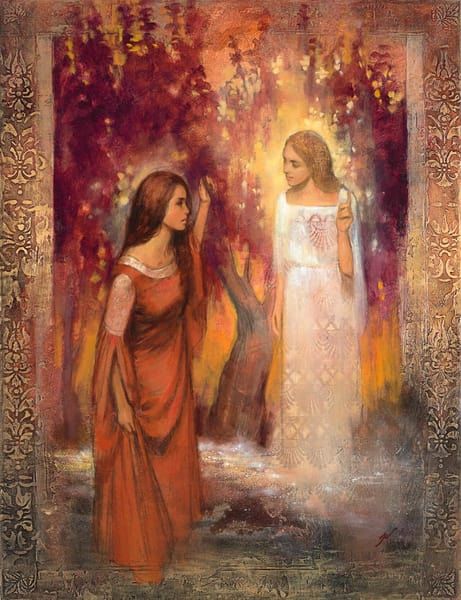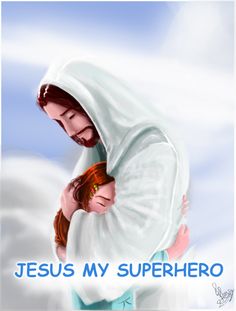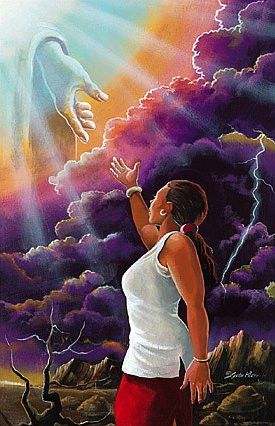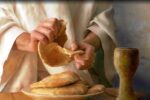YE SHALL KNOW THE TRUTH (5)

(…continued from part four…)
5) Understandably true is the theological facticity that every born again Christian hosts the Divinity in the Person of the Holy Spirit. The pellucidity is brought to light in 2Corinthians 3:17-18. 17 “Now the Lord is that Spirit: and where the Spirit of the Lord is, there is liberty. 18 But we all, with open face beholding as in a glass the glory of the Lord, are changed into the same image from glory to glory, even as by the Spirit of the Lord.” Staring at us in the face is scriptural knowledge of our true image. The Spirit of the Lord, seated in our rejuvenated spirit, due to the new birth, we are changed immediately to look exactly like the LORD, our Saviour. Indeed, this is a free-setting truth. Verse 17 ensures our inalienable ‘liberty,’ the Greek of which is eleutheria (el-yoo-ther-ee’-ah) ‘freedom (legitimate or licentious, chiefly moral or ceremonial).’ We are led, as God’s children, by His Spirit. The fact of the Holy Spirit’s indwelling our spirit realm points to an inevitable understanding that our spiritual liberty does not, in any conceivable reasoning, warrant a libertine wantonness.

Galatians 5:13, “For, brethren, ye have been called unto liberty; only use not liberty for an occasion to the flesh, but by love serve one another.” The word ‘liberty’, eleutheria, is a huge player in this verse and defined as: ‘freedom, liberty and licence.’ Worthy of note is that the word ‘use’ is an invention of the translators, therefore, not in the Greek script. ‘Hold or turn’ would be more appropriate. Pauline charge to Christianity, ergo, is: “We have been called out into the grace of freedom, an exemption from the ritualism of Judaistic ceremonies. We longer live in servitude of sinfulness. This freedom is not a licence to satiate the propensity of carnality.” Mosaic laws are not evil, and cannot be tagged archaic. The truth is this: we uphold the law when we continue to do one thing. Love the neighbour as you would love yourself: for is this deed not the same as observing the greatest of all laws, i.e. “Love the Lord your God with all thine heart, mind, thought and strength?”

Whoso looketh into the perfect law of liberty… (James 1:25).
This is what the word of God teaches, “But whoso looketh into the perfect law of liberty, and continueth therein, he being not a forgetful hearer, but a doer of the work, this man shall be blessed in his deed” [James 1:25]. ‘Looketh’ is not a mere look, like that of the one beholding the mirror; it comes from the Greek parakuptō (par-ak-oop’-to): ‘to bend beside, that is, lean over (so as to peer within): – look (into), stoop down. Metaphorically to look carefully into, inspect curiously; of one who would become acquainted with something.’ This is the same parakuptō, ‘look’, used in 1Peter 1:12 to explain the angels’ desire for the understanding of the word of God. This is what ‘perfect’ of this verse is: teleios (tel’-i-os): ‘brought to its end, finished; wanting nothing necessary to completeness; consummate human integrity and virtue.’ What about ‘law’? It is nomos (nom’-os): ‘of any law whatsoever; by the observance of which is approved of God; of the Mosaic Law, and referring, according to the context, either to the volume of the law or to its contents; the Christian religion: the law demanding faith, the moral instruction given by Christ, especially the precept concerning love.’ The above definitions explain what the scriptural ‘law’ is. ‘Liberty’ is the same Greek of eleutheria.

The Holy Spirit gave us utterance of the glossolalia
25 “In meekness instructing those that oppose themselves; if God peradventure will give them repentance to the acknowledging of the truth; 26 And that they may recover themselves out of the snare of the devil, who are taken captive by him at his will” [2Timothy 2:25-26]. We have become the epistle, read for salvation; therefore, any procacity of carnality must not be displayed in our interactions with the souls of the unregenerate. The clause ‘those that oppose themselves’, a hapax legomenon, occurring only here in Scripture, has one Greek antidiatithemai (an-tee-dee-at-eeth’-em-ahee): ‘to set oneself opposite, that is, be disputatious.’ These are those whose religious knowledge and stance are diametrically at variance with the true gospel of liberty.

Apostle James exhorts, reminding us not to forget: “So speak ye, and so do, as they that shall be judged by the law of liberty” [James 2:12]. A Peterine precautionary attempt to dissuade people from viewing the deity of Jesus in the light of theogonic Hellenism, will serve as the conclusion. “For we have not followed cunningly devised fables, when we made known unto you the power and coming of our Lord Jesus Christ, but were eyewitnesses of his majesty” [2Peter 1:16]. Jesus is the consummate truth. He is the Tranquilizer. Unlike the other fabricated gods of Hellenistic theogony, the Lord Jesus is not a myth. Making it crystal to the wide-eared listening Jews, “Before –the historical— Abraham was,” Jesus, concluding His asseveration, said, “I Am.” Amen!

Get born again by saying this simple prayer.
“Dear heavenly Father, I come to You now in the name of Jesus Christ. I believe in my heart that Jesus is the Son of God. I believe that Jesus died on the cross for my sin. I believe that You raised Him from the dead. I confess with my mouth that Jesus is Lord and I receive Him now as my Lord and my Saviour. I give God all the glory. Amen!”
(Concluded)
Read the 4th part; click here
Visits: 203


